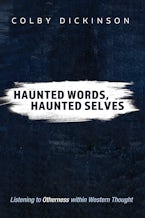- Home
- religion
- philosophy
- The Christ Is Dead, Long Live the Christ
The Christ Is Dead, Long Live the Christ
A Philotheologic Prayer, a Hermeneutics of Healing
by Andrew Oberg
Imprint: Resource Publications
The Christ Is Dead, Long Live the Christ: A Philotheologic Prayer, a Hermeneutics of Healing is a call for renewal and reinvention. Following a brief examination of the historical Jesus (Yeshua, using his actual Aramaic/Hebrew name), the book moves into a phenomenological study of the image, idea, and the place of both in our felt experiences. Looking closer at what we think were the actual words of this wandering sage, the picture we arrive at is one that will surprise, possibly unsettle. Moved out of our traditional comfort zones, we find the need to question what we have been told were Yeshua's teachings, compelling us to further rethink messages on the afterlife, human finitude, so-called atonement theologies, and above all the "kingdom of God." Whatever this vision was--and might yet be--it seems central to Yeshua's efforts, and so we finally weigh these "kingdom" facets against a broader ideascape, offering suggestions for how a Yeshuan "kingdom" project situated within the panoply of a widely comprehended Judaic way-of-being might yield fresh life to we who find worth in the utterances and what they point towards, to we who wonder about a more human(e) world.
Andrew Oberg (PhD in philosophy) is an associate professor in the Faculty of Humanities at the University of Kochi, Japan. He works on phenomenological issues and questions of being in religion and philosophy, seeking always to blur boundaries and ask “what if?” Samples of his professional and personal writing can be found at: http://andrewoberg.blogspot.com/
“Oberg writes a fine phenomenology of ‘theological turn.’ While affirming the humanity of Yeshua, he invites us who see the incarnation of Jesus as central to Christian faith out of the hidden Docetism that unknowingly lurks in what passes for orthodoxy. He provides us with a sorely needed call to think theology while always respecting the mysterium fidei. His is a ‘philotheology’ both creative and cogent, where cross and ‘kingdom’ are indispensable to fidelity.”
—Vincent J. Pastro, Aquinas Institute of Theology
“Using scholarship from Japanese philosophy and religion, ‘weak theology,’ and iconography, Oberg makes a compelling case for a compassionate orthopraxy rather than a retributive orthodoxy. . . . For those of us who have moved beyond supernaturalism, this is a carefully thought-out book of optimism and hope, rooted in Christ as an event.”
—Steven M. Watkins, University of Louisville











